Related Research Articles
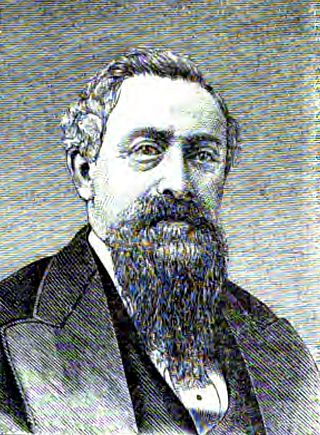
Julius Houseman was an American businessman and politician who served as mayor of Grand Rapids, Michigan, as representative in the Michigan House of Representatives and as Congressman in the U.S. House of Representatives.

Dexter is a town in Penobscot County, Maine, United States. The population was 3,803 at the 2020 census. It is part of the Bangor metropolitan statistical area. Dexter Regional High School, which serves Dexter as well as other nearby small towns, is located in the town.
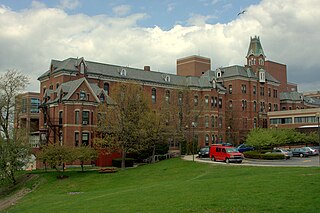
Francis Henry Fassett was an American architect in Maine who built as many as 400 homes and buildings throughout the state. Working in the Victorian High Gothic and Queen Anne styles, he especially influenced the look of Portland.
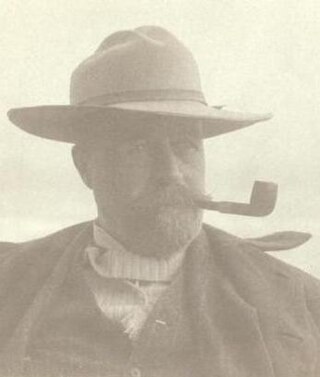
John Calvin Stevens was an American architect who worked in the Shingle Style, in which he was a major innovator, and the Colonial Revival style. He designed more than 1,000 buildings in the state of Maine.

Moses Tyler Stevens was an American textile manufacturer and a U.S. Representative from Massachusetts.

Capt. Christopher Levett was an English writer, explorer and naval captain, born at York, England. He explored the coast of New England and secured a grant from the King to settle present-day Portland, Maine, the first European to do so. Levett left behind a group of settlers at his Maine plantation in Casco Bay, but they were never heard from again. Their fate is unknown. As a member of the Plymouth Council for New England, Levett was named the Governor of Plymouth in 1623 and a close adviser to Capt. Robert Gorges in his attempt to found an early English colony at Weymouth, Massachusetts, which also failed. Levett was also named an early governor of Virginia in 1628, according to Parliamentary records at Whitehall.
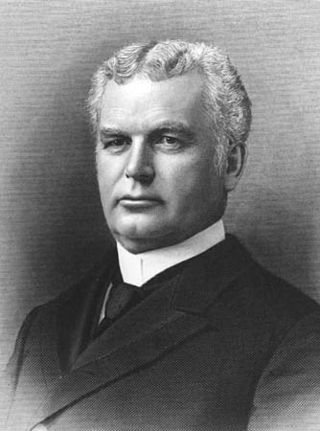
Hugh Joseph Chisholm I was a Canadian industrialist who later became a citizen of the United States. He was born in Chippawa, Ontario, to parents of Scottish ancestry. His early years as an entrepreneur in the news distribution business provided a foundation for his later accomplishments in the pulp and paper industry. His founding and leadership of pulp and paper, fibre-ware, and light and power companies as well as banks and railways made him a dominant figure in Maine industry. His legacy went beyond his reputation as a capitalist, however; he created the first forest management program for International Paper Company and developed a planned community for the workers in his mills which was a model for the nation.

Yarmouth is a town in Cumberland County, Maine, United States, twelve miles north of the state's largest city, Portland. When originally settled in 1636, as North Yarmouth, it was part of the Massachusetts Bay Colony, and remained part of its subsequent incarnations for 213 years. In 1849, twenty-nine years after Maine's admittance to the Union as the twenty-third state, it was incorporated as the Town of Yarmouth.
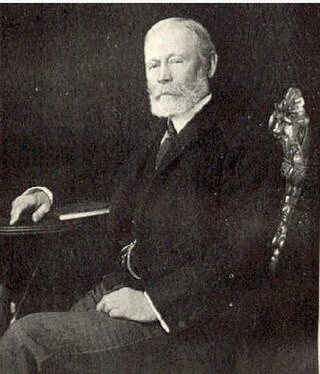
Charles W. Leonard was an innovator in textile manufacturing, granite quarry excavation, as well as harness racing and rail transport.

Henry Sweetser Burrage was a United States clergyman, editor and author.

Charles Freeman Libby was an American politician and lawyer from Maine. Libby, a Republican served as President of the Maine Senate from 1891 to 1892 and later as President of the American Bar Association.

The Portland Woolen Mills were a wool textile manufacturer in the St. Johns neighborhood of Portland, Oregon. By 1950, they had become the largest wool manufacturer west of Cleveland, Ohio. The origins of the factory started in Sellwood in 1901 but after a fire destroyed the mill two years later owners decided to rebuild in St. Johns. Portland Woolen Mills offered several worker programs including baseball, basketball and bowling teams; a cafeteria and a library.
Levi Cutter was an American businessperson and politician from Maine. Cutter served as the fourth Mayor of Portland from 1834 to 1840.

George Austin Morrison was a Scottish-American merchant, banker and industrialist.

Sparhawk Mill is a former cotton mill on Bridge Street in Yarmouth, Maine, United States. Built in 1840 and made of brick, it is home today to The Garrison restaurant and several other businesses. It stands, just east of the town's Second Falls, on the site of several previous mill buildings, the earliest of which was a wooden mill dating to 1817.

William Hutchinson Rowe was an American author and historian who lived in Yarmouth, Maine. The town's elementary school, built the year he died, is now named for him. In 1937, he published Ancient North Yarmouth and Yarmouth, Maine 1636–1936: A History, covering three centuries of the town's past. As of the early 21st century, it was still in print.
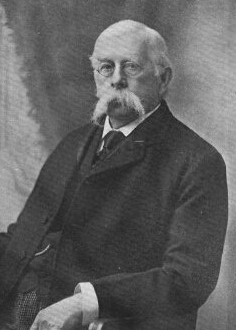
George Warren Hammond was an American businessman. Camp Hammond, in Yarmouth, Maine, is named for him. He was also one of its architects. Built in 1889, it was placed on the National Register of Historic Places in 1979.

Main Street is a historic street in Yarmouth, Maine, United States. It is part of the 18-mile-long (29 km) State Route 115 (SR 115), the eastern terminus of which is in Yarmouth at the intersection of Marina Road and Lafayette Street (SR 88), at Yarmouth Harbor in the Lower Falls area. Its western end is a merging with Walnut Hill Road in North Yarmouth, at which point SR 115 continues west.

Charles Thornton Libby was an American author, genealogist, historian and lawyer. He wrote five known books: The Libby Family in America, 1602–1881 (1882), Cash, Panics and Industrial Depressions (1907), The Income Tax Amendment (1907) and Province and Court Records of Maine and Genealogical Dictionary of Maine and New Hampshire, Part I (1928).

The Second Falls are the second of four waterfalls in Yarmouth, Maine, United States. They are located on the Royal River, approximately 1.35 miles (2.17 km) from its mouth with inner Casco Bay at Yarmouth Harbor, and approximately 0.35 miles (0.56 km) upstream of the First Falls. The river appealed to settlers because its 45-foot rise in close proximity to navigable water each provided potential waterpower sites. As such, each of the four falls was used to power 57 mills between 1674 and the mid-20th century.
References
- ↑ The New England Business Directory and Gazetteer. Sampson & Murdock Company. 1854. p. 1908.
- ↑ H.J. Libby & Co – WorldCat
- 1 2 3 Burrage, Henry Sweetser (1909). Genealogical and Family History of the State of Maine, Volume 1. Lewis Historical Publishing Company. p. 312.
- 1 2 3 4 Burrage, Henry Sweetser (1909). Genealogical and Family History of the State of Maine, Volume 1. Lewis Historical Publishing Company. p. 309.
- ↑ Yarmouth Revisited, Amy Aldredge (2013) ISBN 0738599034
- ↑ Representative Men of Maine. Lakeside Press. 1893. p. 219.